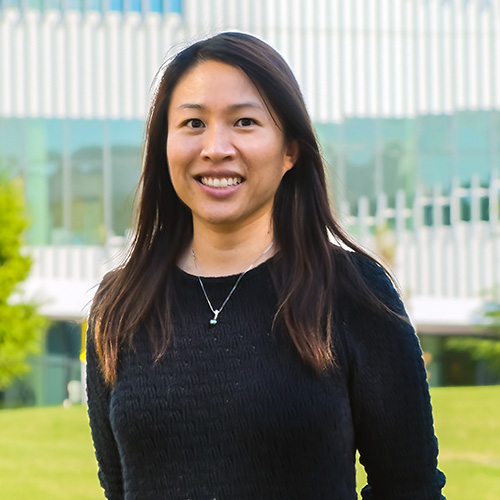Prof. Hsiao Selected to Receive the American Physical Society’s 2025 Early Career Award for Soft Matter Research

Prof. Lilian Hsiao has been selected to receive the American Physical Society’s 2025 Early Career Award for Soft Matter Research. The award recognizes outstanding and sustained contributions by an early-career researcher to the soft matter field. Specifically, Prof. Hsiao is being recognized “for using in-situ confocal rheometry to identify microscale structure-property physics of anisotropic colloids during shear flow, and for applying self-assembly principles and scaling relations to address knowledge gaps in the friction of soft materials.”
In addition to the APS 2025 Early Career Award, Prof. Hsiao was also announced as the recipient of the L.E. Scriven Young Investigator Award by the International Society of Coating Science and Technology. The award is given in recognition of outstanding sustained achievements or one-time breakthroughs in the area of continuous liquid film coating science and technology. Prof. Hsiao was cited for her sustained achievements in uncovering corrosion protection mechanisms of epoxy coatings and engineering interfacial friction for haptic applications.
Lilian Hsiao is an Associate Professor of Chemical and Biomolecular Engineering at North Carolina State University. She received her B.S. in Chemical Engineering from the University of Wisconsin-Madison in 2008 and her Ph.D. in Chemical Engineering from the University of Michigan in 2014, where she received a Rackham Fellowship for her work on colloidal gels. Her postdoctoral training at the Massachusetts Institute of Technology was on the topic of nanoemulsion gels. She joined the faculty at North Carolina State University in 2016.
At NC State, Prof. Hsiao’s research interests are in the areas of soft materials and complex fluids – specifically on the use of shaped colloids and functionalized polymer surfaces. The Hsiao Lab specializes in using microscopy and rheology to identify the frameworks used to engineer the mechanical properties of soft surfaces. Their work can be applied to many fields: understanding of nanoscale forces in non-spherical particulate systems, revealing the biomechanics of lubricated joints that make movement possible, and developing new types of materials with directional properties that are not found in nature. They use an interdisciplinary approach that combines experiments and models from materials science, chemical engineering, physics, and mechanical engineering to understand the roles of structure and dynamics in these systems.
Congratulations on these outstanding achievements, Prof. Hsiao!